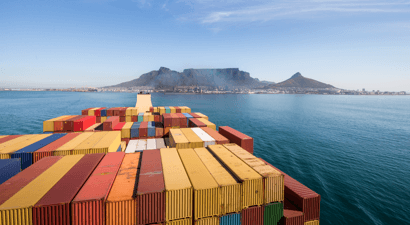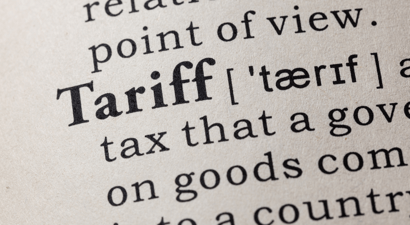Cross-Border Insolvency and Hanjin Shipping Co Limited: A South African Perspective
On 1 September 2016, Hanjin Shipping Co Limited ('Hanjin') successfully applied for and obtained an order whereby it was placed under rehabilitation. Such an order was obtained within 24 hours of the company making application to the Korean courts, without notice or input from other interested parties, most notably Hanjin's creditors.
The Receiver appointed by the Korean court is the company's CEO, Mr Tae Su Seok. In essence, the order provides for a stay of proceedings (whether already commenced or contemplated) against the company until at least 25 November 2016. 25 November is the deadline for the submission of a draft rehabilitation plan for the company. In the meantime, the company will continue to operate under the auspices of its current management team.
It is reported that Hanjin has filed a Chapter 15 petition in a US bankruptcy court in New Jersey and plans to pursue legal action in roughly ten countries this week (5-9 September 2016), and later expand that to 43 jurisdictions, no doubt to obtain recognition of the Korean rehabilitation proceedings ("the Korean proceedings").
Although South Africa is a signatory to the United Nations Convention on Cross Border Insolvency, the provisions of that convention have not been given effect to in South Africa, with the result that there is no automatic recognition of the Korea proceedings. In order for the Korean proceedings to be recognised in South Africa, the Receiver would formally have to make application to the South African court for recognition. A number of applications for recognition of foreign 'rehabilitation' proceedings have been made in South Africa in the past, including those of Korea Line, STX Pan Ocean, Excel Maritime, Daichi Chuo Kisen Kaisha and Starbulk Carriers.
The practice that has developed in South Africa is that such applications are brought ex parte (without notice). Recognition is sought on the basis of comity, meaning that the position of the appointed official / liquidator would be recognized in South Africa and afforded appropriate power in this jurisdiction, based on the association between South Africa and Korea for their mutual benefit. To date, none of these applications have been challenged, and as a result, there is no jurisprudence in South Africa on this point. Comity, in principle, requires that similar relief is available in this jurisdiction.
Whether an application for recognition of the Korean proceedings would succeed on the basis of comity remains to be seen. As mentioned above, no opportunity was provided to other interested parties when the Korean order was sought. The affairs of the company are not susceptible to independent judicial management, which remain in the hands of the present board. Most notably, it is reported in the international press that it is expected that Hanjin will ultimately be liquidated.
South Africa’s company law was extensively overhauled with the promulgation of the Companies Act 71 of 2008, which became effective on 1 May 2011. The Act introduced the concept of business rescue and is the piece of legislation that seems to precipitate applications in South Africa for the recognition of foreign 'rehabilitation' proceedings.
Business rescue in South Africa amounts to judicial oversight of the continued operation of the company by a court appointed independent business rescue practitioner. Importantly, an application for business rescue is made on notice to interested parties and, furthermore, the court may only grant such an order in circumstances where there is a reasonable prospect of rescuing the company.
The recent judgment in the Western Cape court in the matter of the MV "Kenanga" may provide further arguments against recognition of the Hanjin Korean proceedings. In this case, the applicant (the mortgagee bank) sought recognition of a decree of the Indonesian courts suspending actions against the vessel owner pending the approval of a scheme of arrangement or settlement plan. This matter is distinguishable from previous applications in which recognition of such proceedings had been sought, in that the application was made following the arrest and application for the sale of the vessel. As, was accepted by the court, recognition of such proceedings following an arrest would not, pursuant to the provisions of section 10 of our Admiralty Jurisdiction Regulation Act, suspend the arrest or sale proceedings. The applicant had to attempt to argue that the arresting creditors were bound by the decree of the Indonesian court from the date such decree was issued by that court, which preceded the arrest of the vessel.
The application was not brought on the basis of comity. Instead it was accepted by both parties, as well as the court, that the principles that apply to the recognition of the enforcement of a foreign judgment similarly applied to the recognition of cross-border insolvency proceedings. The court accepted that enforcement of such proceedings needed to meet the requirements for the recognition and enforcement of foreign judgments. Amongst these requirements is:
- The need for international jurisdiction;
- Finality of the judgment; and
- That the judgment is not contrary to public policy.
Clearly the Korean proceedings would not meet the first two of these requirements, but as stated above, it may be that the facts in this matter are distinguishable.
Shepstone & Wylie has, on behalf of certain creditors, notified all the other maritime firms in South Africa that we require notice of any application by Hanjin seeking recognition of the Korean proceedings.





